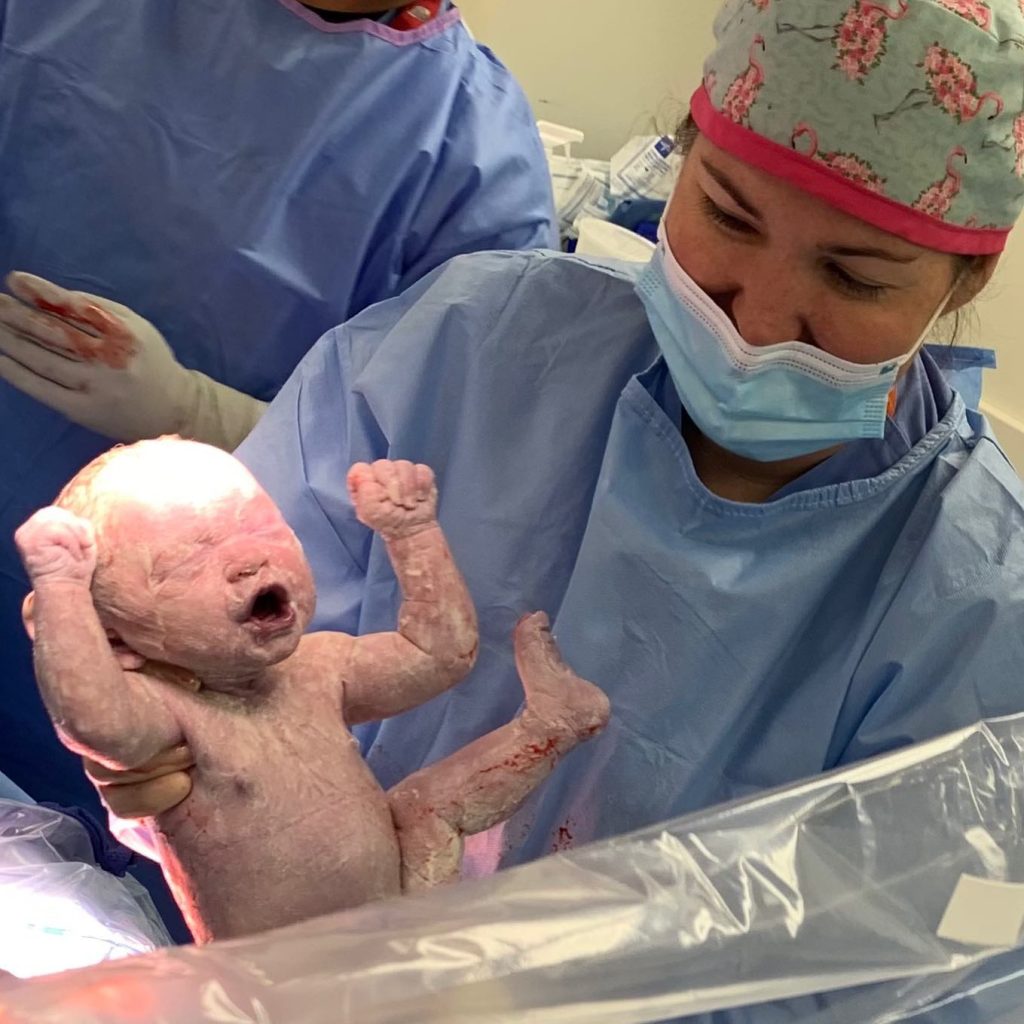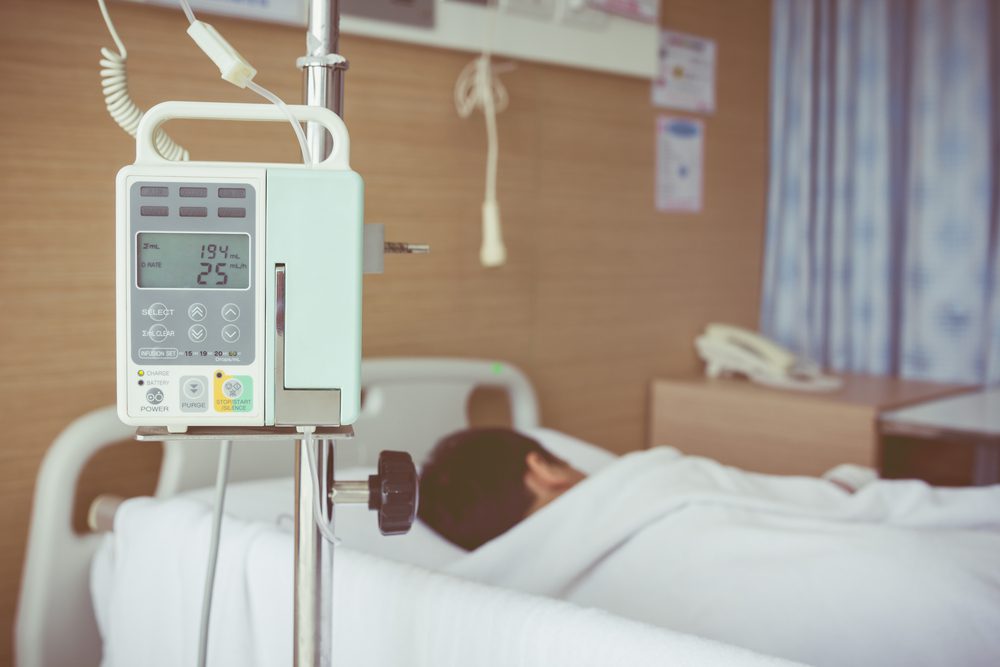
Everyone’s experience with labor is different, as is everyone’s experiences with a cesarean delivery (C-section). Whether it’s an emergency C-section with high stress, or a planned C-section with low anxiety, recovery is a whole different story. Some women can recover from a Cesarean within a matter of weeks, some a matter of months. And while everyone’s experience with C-section recovery is unique, there are a few things that you’ll need to be aware of when returning home with your new addition to the family.
Cesarean Section Recovery Overview
C-sections account for 31.8% of all deliveries in the United States. However, the C-section rate is considerably lower among low-risk, first-time births (25.6% in the U.S. and 21.9% in Arizona). C-sections require extra precautions and healing time when compared to a vaginal delivery.
You will have many questions both before and after surgery; how is the post-partum pain, what will I be able to do, what are my restrictions, when can I hold my baby, how long with it take to recover?
Cesarean recovery involves a variety of steps; all monitored closely by your ObGyn physician and the hospital staff.
Initial Moments After C-Section
Right after your Cesarean, close monitoring will occur in a post-op recovery room. The staff will keep an eye on your level of nausea, which could be a result of the anesthesia, your blood flow, any pains you might be feeling in your abdomen, the firmness of your uterus, and your vital signs.
As with a vaginal birth, you could still go through ‘the shakes,’ as they are called. You may also feel extremely fatigued, groggy and nauseous. Much of the way that you will feel immediately after the surgery has to do with the anesthesia that was given.
If you were given morphine through your epidural, an itchy sensation is quite common and can be counter-treated with medicine.
Recovery Room
When your ObGyn physician feels you’ve recovered well, they will move you into the recovery room. You’ll probably notice that this room is a bit more spacious and allows for more visitors. You will also notice that things are beginning to hit you first the first time. It is quite common to feel the gravity of the situation set in while in the recovery room.
What is the Recovery Room Like After a C-Section?
This is the time when family and friends, and the sight of your newborn baby, are extremely important. It is also a very important time for your partner to step up and be by your side, reassuring you that all is well.
You will continue to be closely monitored by the nurses, and will most likely have your catheter, blood pressure monitors, and IVs with you in the recovery room for another day or two. You can expect to feel some pain and discomfort. It is important that you remain honest in discussing the amount of pain you’re in with your nurses so that they can prescribe the proper pain medication.

Getting Moving
After surgery, most patients are encouraged to get up and out of bed within six hours. Typically you won’t be walking laps around the hospital six hours after surgery, but you are encouraged to simply get up and perhaps stand for a few moments. It’s not only scary and uncomfortable, but there are also some rules to remember when getting moving for the first time. Keep your focus, stare straight ahead, and have someone help you.
How Bad Is The Pain After a C-Section?
Simply getting out of bed and taking that first step is the toughest part for many new moms, but it’s crucial to a quicker and healthy recovery. You will feel some pain and discomfort, and many C-Section patients feel anxiety about what’s going on inside of them as they begin to move around, but this is a huge milestone in your recovery process.
Pain Management, Nutrition and Bonding
Coughing, sneezing and even breathing might be uncomfortable during those first few days after surgery. Your nurse will instruct you on how to do these things so as not to increase pain.
The hospital staff will continue to help with pain management. They will also ensure you’re eating and drinking enough. In addition, bonding with your newborn can include attempting to breastfeed.
Get Walking
By day one, hopefully you are no longer attached to the catheter and are moving around a bit more. You will begin to eat and drink almost like normal again. And, probably with the help of a nurse and/or partner, you will begin to venture out into the halls.
While it might be the last thing that you’ll want to do, it’s very important that you get moving to help naturally improve circulation, limit your risk for blood clots and Deep Vein Thrombosis (where a blood clot forms deep within the tissues of the body, which can lead to greater complications in the heart, brain or lungs), and get your bowels moving again.
Take a Look
The second day is also a great time as any to take a look at your incision. It’s actually an important part of the recovery process, because you’ll need to keep note of any changes that might indicate an infection in later days. The incision area will probably cause intense itching and numbness, which is normal.
While your physician will monitor your incision site, it’s your responsibility to care for it and notice any changes over the upcoming days.

Home Recovery
Within two to four days, depending on your recovery speed and how many laps you’re taking around the hospital floors, you will be heading home. It’s at this point you’ll feel that overwhelming fear creeping up once again, because not only will you need to take good care of yourself and your incision, you’ll have a new little one to take care of as well.
During this time, it’s recommended that you avoid lifting anything heavier than your baby, and twisting or any movements that can put pressure on the incision. Additionally, abstain from sex and rigorous exercise. You’ll need as much help as you can get, so take advantage if anyone asks to lend a hand. You’ll also be given a prescription for any pain or discomfort, if needed. Alternatively, you may take over-the-counter acetaminophen or ibuprofen.
A full recovery typically takes six weeks, so be sure to plan accordingly. It’s normal to have vaginal bleeding after a C-section, though it’s typically not as heavy as after a vaginal delivery. Make sure you keep your incision clean and dry.
You don’t want to rush back into your old routine. Take it easy, spend time with your new baby, and take care of yourself. You will be recovering both emotionally and physically, so be well aware of that fact and make sure that family members know as well. Over the next several weeks, you might also experience “baby blues,” caused by temporary fluctuations in hormones that can affect your mood.
Warning Signs To Look Out For After Your C-Section
Contact your ObGyn physician immediately if you experience any of the following:
- Fever
- Chest pain
- Shortness of breath
- Abnormal discharge
- Pain or swelling in your legs
- Depression or feeling hopeless
- Redness, swelling, oozing, or infection at the incision site
- Sharp pains, worsening, or excessive pain
- Pain while urinating or blood in your urine
- Soaking one pad or more per hour
- Passing a blood clot larger than a golf ball
Postpartum Visits
Your first postpartum visit typically occurs during the second week. At that time, your doctor will inspect your incision and discuss recovery progress.
During week six you will have your final postpartum appointment. Every mother heals and recovers at different rates so it’s OK if you need more time. If your pain has decreased and the incision is properly healing, you may be given the green light to resume normal daily life.
Reducing Unnecessary C-Sections
Our aim is to reduce the number of unnecessary cesareans. In doing so, we reduce unnecessary risks to women and their babies as well as unnecessary costs for hospitals and health systems.
If you would like to meet with a knowledgeable doctor, consider contacting Women’s Health Arizona. As Arizona’s largest ObGyn group, we’re trained and solely dedicated to delivering the best ObGyn experience in convenient and comfortable settings around Phoenix.
